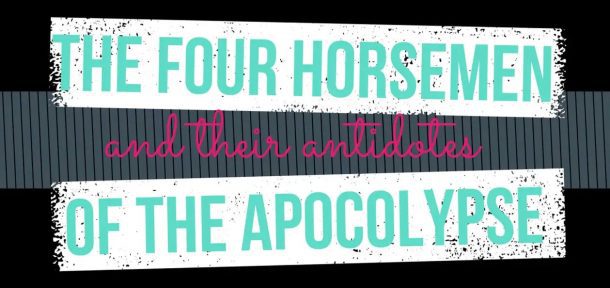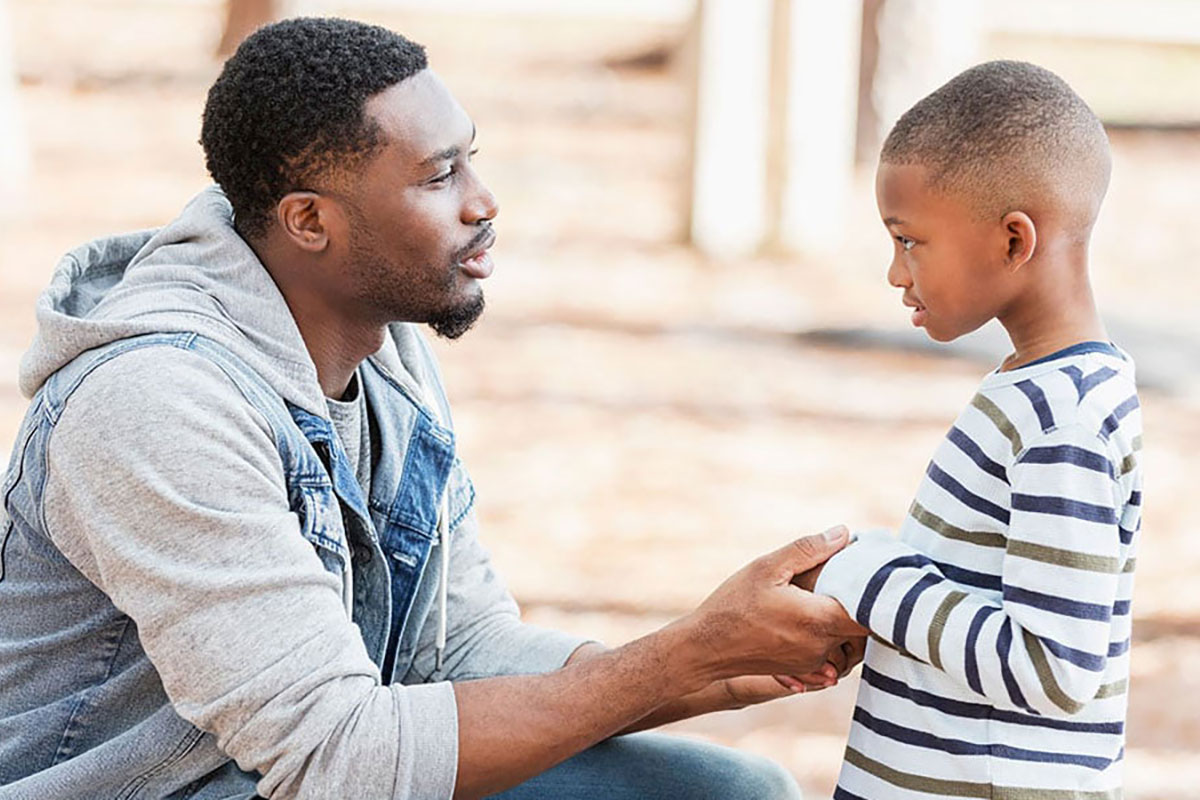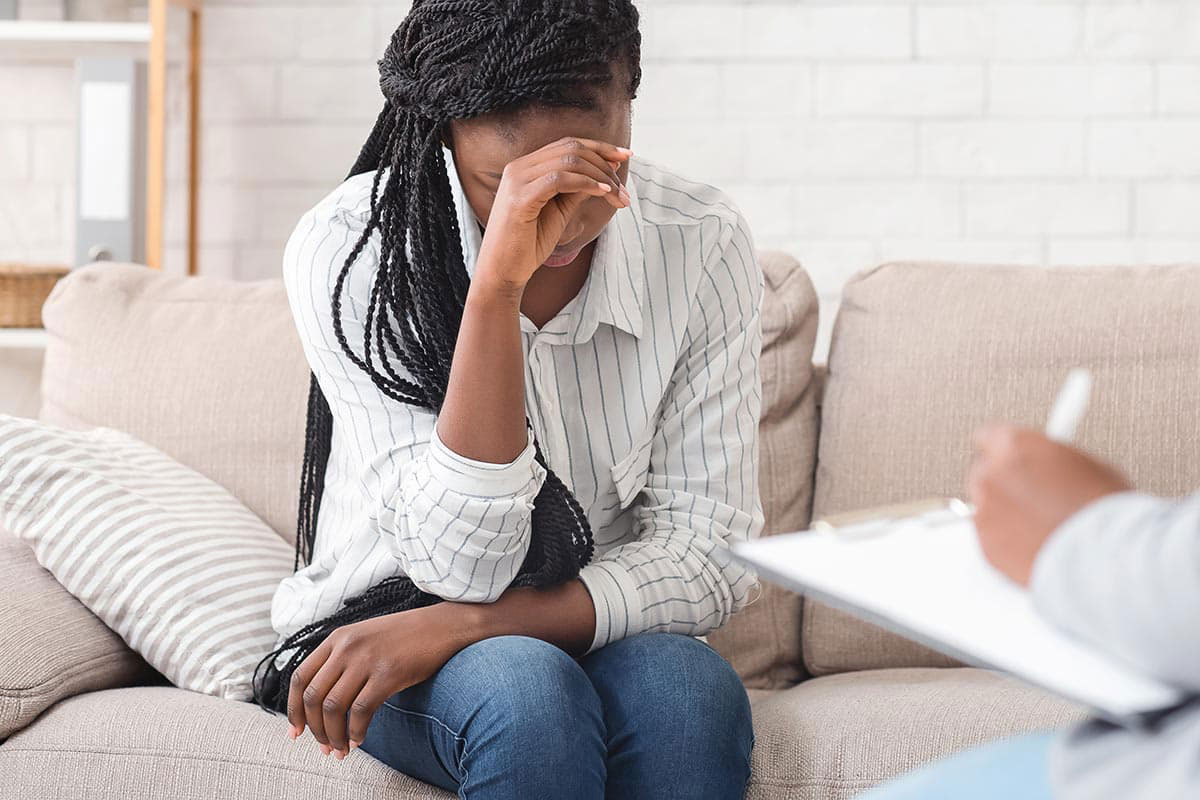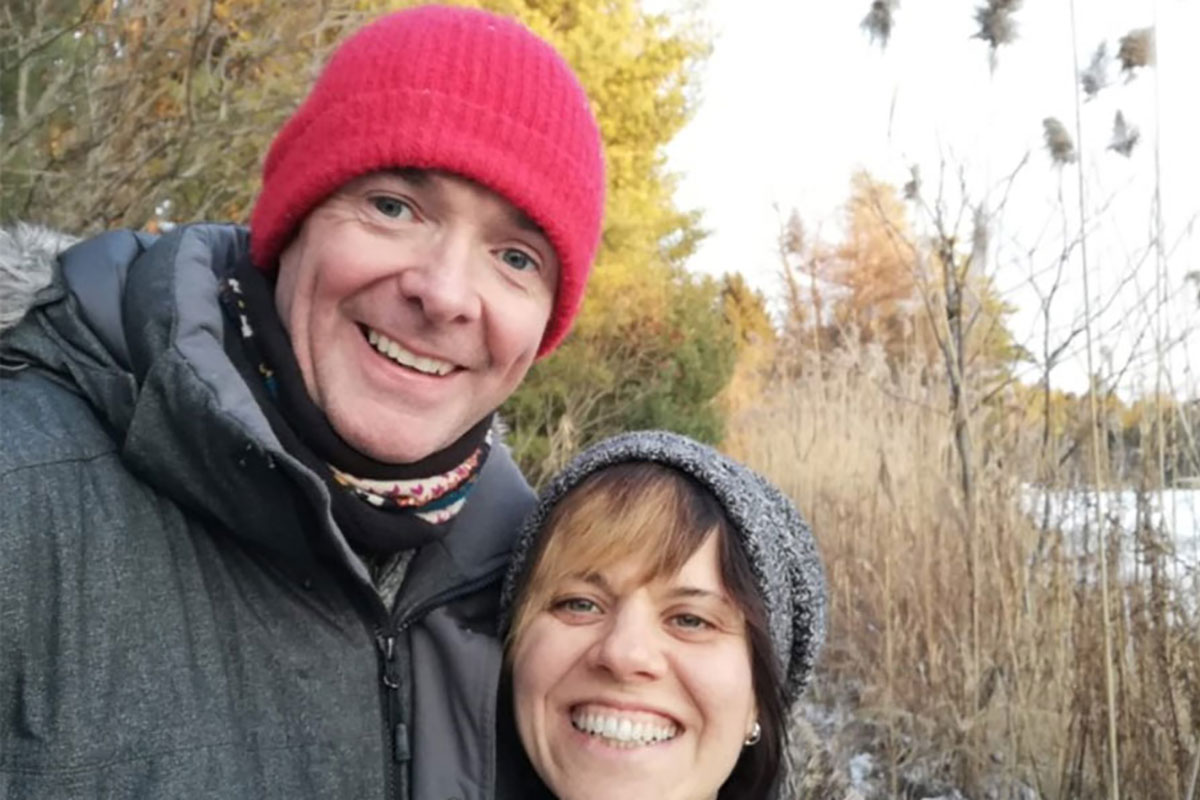Relationships benefit from attention…no doubt… but what type of skills work?
I used to get overwhelmed, reactive, blame others, say the wrong thing and become passive aggressive. Fortunately, over the years I have learnt to reduce these and to increase the skills needed to connect and build healthy relationships.
Personal relationships can be hard work. Marriage, dating, friendships and family require more skills than we are ever taught in school and we often didn’t get healthy modeling from other people (parents, caregivers) in our lives.
The renowned marriage and family therapists’ Drs John and Julie Gottman discovered four key behaviours that indicate the ending of a relationship is approaching. They call these the four horsemen of the apocalypse and they can predict with 93% accuracy that divorce is imminent. Thankfully the antidotes were also discovered.

Conflict
It is how conflict in a relationship is worked through that determines if the relationship will survive and grow or wilt and end. Think of it like a house that is built to last through different weather conditions. Your relationships can become like a well-built house; with the correct maintenance, materials and tools.
I want to share the four horsemen and their antidotes as I have found them so beneficial in my personal relationships. Clients I have worked with also find them helpful.
Horseman Number 1: Criticism
Normally this is the first one that rears its ugly head in a relationship. It looks like attacking the other person’s personality or character. It sounds something like this “you are so lazy” or “you are a bad person”.
The Antidote: A Gentle Start-Up
State your complaint as you experience it without blame using a gentle start-up. A complaint is different than criticism.
It sounds like this “I think we can figure out a solution to this together. (remember tone of voice and body language indicates a gentle start up) I am feeling unheard and left out of this conversation can you please listen to my perspective and let me know you have heard my perspective.”
If it seems difficult to imagine talking like this, I know what you mean. It was really awkward for me when I started learning about healthy communication at first. With time I learned to use this style of communication in my own way and less like I was reading from a book. Of course, these are examples and using them requires practise to make them comfortable.
Horseman Number 2: Defensiveness
Engaging in this behavior is so common. It looks like making excuses, shifting blame and overly justifying inappropriate behaviours. It sounds like this “I didn’t do it and if I did it was your fault because you made me and you do worse and its not a big deal anyway” (This one was easy for me to write as it was very familiar to me)
The Antidote: Take Responsibility
It is ok to make mistakes the world doesn’t end if you screw things up. Trust me I have made so many by now that I am much better at not taking them so seriously. As Beckett wrote “Ever tried. Ever failed. No matter. Try again. Fail again. Fail better.” Your partner will be happy that you have taken responsibility even for a part of the problem and this creates room to problem solve together. You don’t lose ground in a healthy relationship by taking responsibility.
Horseman Number 3: Contempt
This is a particular nasty horseman in a marriage, partnership or friendship. It is really difficult to resolve conflict if one person views the other with an air of superiority or deep disdain. It looks like passive aggressive comments, put downs, eye rolling, sneering etc. This destroys emotional, psychological and even physical health
The Antidote: Take Responsibility, Build Respect and Admiration
The first part of this involves taking responsibility for your own feelings and needs. Learning to communicate these in a healthy manner that does not use passive aggressive language is important. Sharing your own emotional fears and owning them helps turn this horseman away at the beginning. Longer term though there is a need to cultivate a sense of fondness and care for your partner in order to secure the relationship house against this horseman. Intentionally doing kind acts for your partner and trying to see the best in them on an ongoing basis can help ward off contempt. It can be hard to rekindle these positive emotions due to ongoing conflict. Remembering the good times and the reasons you want the relationship to work can be helpful here.
Horseman Number 4: Stonewalling
This horseman is often as a result of contemp. One person shuts down from communication with their partner, leaves the room or engages in distraction without the intention or agreement of returning to the topic. This is different from agreeing to take time out to regulate and return to the conversation. An overwhelmed nervous system that can’t cope with the difficult topics is often a factor when this horseman enters a relationship. It often looks like the person stonewalling doesn’t care about the relationship. This may not be the case as the person who stonewalls might lack the skills to self regulate.
The Antidote: Psychological Self Soothing
Learning to self sooth is a vital skill for everyone in a relationship. Over the years I have learnt how important it is for me to down regulate my anxiety and fears to be better able to ask for help from others without demanding it due to being in a panicked state. Having difficulty self soothing can be due to anxiety, trauma, anger, attachment injuries, depression or difficulty understanding emotions. Learning to co-create a way to both self soothe as an individual and co-regulate as a couple is the work of relationships, I believe. To learn these skills often requires work on an individual level as well as work on the relationship level.
The therapists at our centre are trained in the Gottman model as well as Emotionally Focused Couples Therapy. Just as important as the training is the way in which we practice these skills in our own relationships to grow and learn. One of the things I like about being a couple’s and relationship therapist is that I get to reflect on how I am doing in my relationships and correct the mistakes I make on a daily basis.






